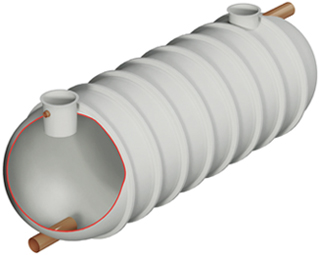There’s no getting away from it – if you have rats in your home it can be a major problem. And the same goes for your drainage system.
Rats are very good at creeping into small gaps and cracks, and drains provide both shelter and food meaning they’re very popular with rodents.
There are a number of signs that you may have a problem with rats on your property. These include:
- Rat droppings
- Chewed paper, cables, plastic etc
- Small holes in walls
- Scratching sounds coming from the roof, wall or floors
If you suspect there are rats in your drains, you need to address the issue immediately. In this article, we’ll explain what preventive measures you can put in place and the best way to deal with rats if they have invaded your drains.
What problems do rats cause?
Like all rodents, rats are incredibly unhygienic animals and carry all manner of unpleasant and harmful diseases. If rats are in your drain it could mean that these diseases end up in your water supply, thus putting you and your household at risk.
While you may not be surprised to hear that rats can make you ill, you might not know that they can also have a detrimental effect on the structure of your property. By gnawing through wood and electrics your house could become at risk so it’s vital to deal with a rat infestation as soon as possible.
Sealed drains
Rats are industrious creatures and are great climbers, swimmers and can slip through the smallest of gaps. So the very first step to stop rats from getting into your drains is by sealing your drains.
By making sure there are no gaps in your pipework you minimise the chances of rats sneaking into your drains.
You should also survey your entire home plugging any gaps you come across.
Rodent barriers and cages
Rodent barriers, cages and traps are also great options to stop rats from entering your drains. You can place rodent barriers inside the pipework to keep rats out and they come in a range of sizes and types depending on which part of the drainage system you’re looking to implement them.
This includes one-way valves for underground drainage and downward-facing fins to be placed in the discharge stack. Intercepting traps can also play a key part in preventing rodents from causing trouble in your drains. This type of trap is a section of the U bend made from fireclay that makes it more difficult for rats to progress through your pipes. However, depending on how well the rat can swim, they may be able to avoid it so it isn’t foolproof.
Metal cages can also be positioned in ventilation pipes, stopping rats from gaining entry to your drains.
When to seek professional help
If the worst has happened and you suspect that you have rats in your drains, then you need to seek professional help straight away. Once a rat infestation has begun it’s only going to get worse and the team at Wildon can provide a whole host of services that can help you tackle the problem. This includes CCTV drain surveys to identify which areas of your drains are affected by rats and regular cleaning and maintenance services to keep them at bay and install future preventative measures.
For more information on how we can help, contact us today.
Go back to








